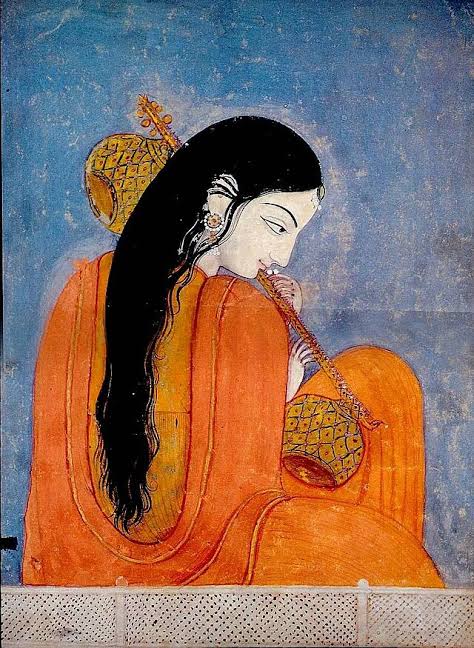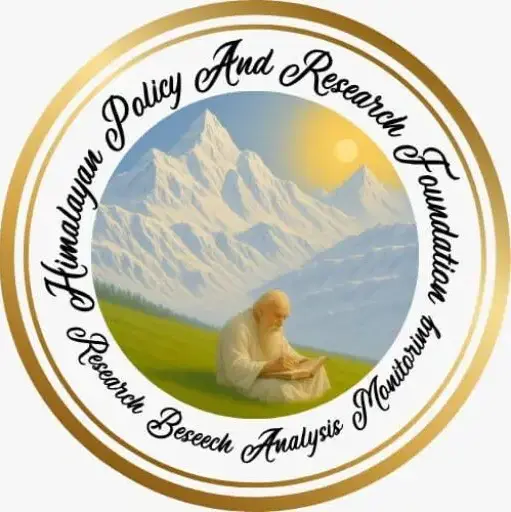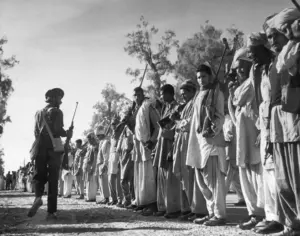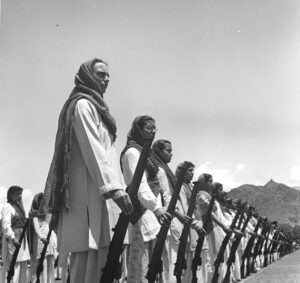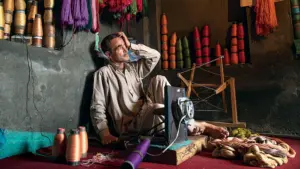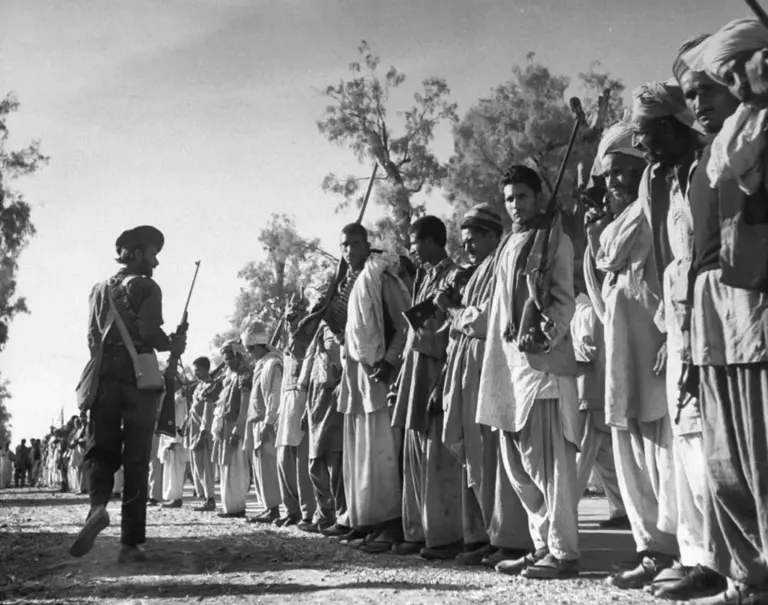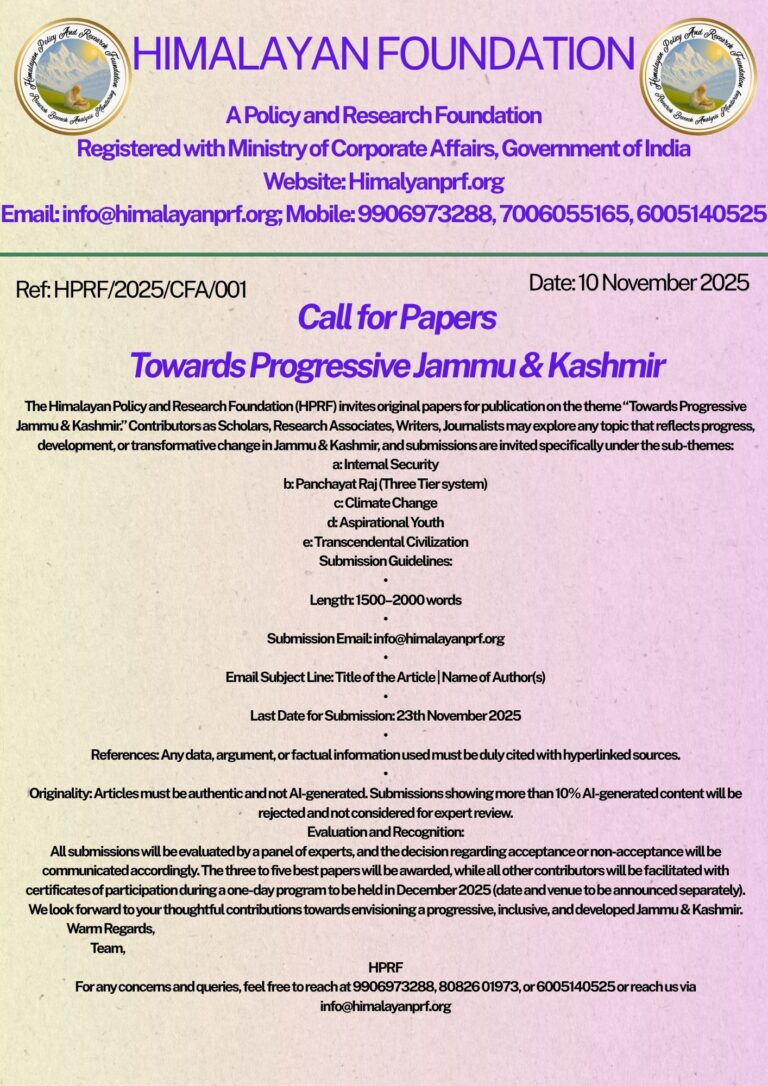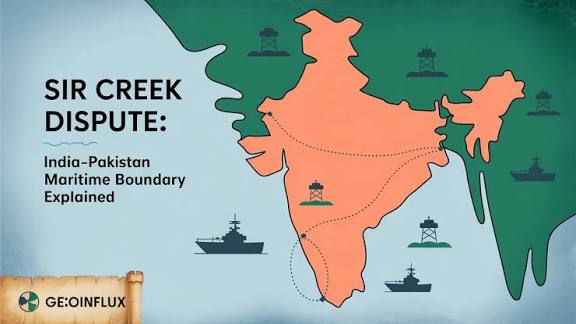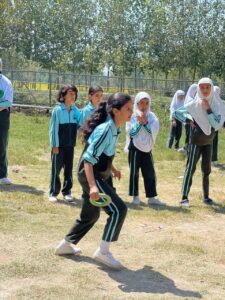By: Dr Zahid and Irshad Ahmad Bhat
There are civilisations that forget, and there are civilisations that remember too much. Kashmir, tragically, is both. In its present is the loss of what it once knew, and in its memory is the echo of knowledge forms that never sought to dominate the world, only to understand it more intimately. The indigenous knowledge system of Kashmir is not an anthropological relic. It is a living testimony to an epistemology that is relational, ecological, ethical, and deeply metaphysical—a mode of knowing that does not separate the knower from the known.
To speak of knowledge in Kashmir today is to speak not merely of content but of epistemic being—of a way of inhabiting the world that resists the Cartesian severance between mind and matter, subject and object. As Martin Heidegger once wrote, “To dwell is to leave space for things to reveal themselves.” The indigenous thought of Kashmir embodies this ethic of dwelling rather than possessing, of listening rather than extracting.
The spiritual and philosophical traditions of Kashmir are among the most refined articulations of indigenous knowledge anywhere in the world. In the poetic verses of Lal Ded, we encounter a radical epistemology:
“Shiva abides in all that is, everywhere. Then do not discriminate between a Hindu and a Muslim.”
This is not syncretism as compromise, but ontological pluralism—a view of reality that refuses to fragment being into narrow identities.
Kashmir Shaivism, with its non-dualistic underpinnings, situates knowledge not in rational categorization but in the inward illumination (pratyabhijna), the recognition of the self as non-separate from the divine. This resonates with Plotinus, who argued, “Knowledge has three degrees—opinion, science, illumination. The last is absolute knowledge.”
In the Sufi worldview, particularly as expressed by Nund Reshi, the truth is not deduced but lived, through love, surrender, and ethical conduct. In his verses, there is a recurring theme of the futility of learning without humility:
“He who reads and reads, and does not live, is like a donkey loaded with books.”
For centuries, the indigenous knowledge of Kashmir has functioned not as a technique to dominate nature, but as a grammar of co-existence with it. The pastoral communities of the Gujjar-Bakarwal, the agricultural rhythms of the valley peasantry, and the spiritual reverence for water bodies all reflect an ecological worldview not born of modern environmentalism, but of an ontology of kinship with the earth.
Aristotle said that “To be a human is to be a political animal.” But in Kashmir’s indigenous consciousness, to be human is first to be a custodian of relationality—to belong to a world where the river has rights, the forest has memory, and the mountain is not backdrop but witness.
The climate sensitivity embedded in local agrarian calendars, the use of plants for healing, the oral transmission of weather knowledge—all constitute forms of science, though they remain marginalized by institutional epistemologies that valorize only what is written, measured, and standardized.
To reduce Kashmiri indigenous knowledge to its utilitarian dimensions is to betray its essence. The aesthetic is central to its epistemology. The shawl-weaver, the woodcarver, the papier-mâché artisan—all enact a form of thought through hand, pattern, and patience. These are not artisans in the industrial sense; they are philosophers of form. Every motif is an argument, every colour choice an ethical act.
The weaver is a thinker—his loom a meditation, his yarn a narrative. In this, Kashmiri craft echoes Kant’s notion of the “purposiveness without purpose”—an aesthetic that is not instrumental but contemplative.
The greatest violence wrought upon Kashmir may not be territorial, but epistemic—the slow, corrosive dismemberment of its indigenous ways of knowing by the combined forces of colonial administration, developmentalist paternalism, and modernity. The British classification of land and securitization of space have each contributed to the discrediting of oral, embodied, and mystical knowledge systems.
Foucault reminded us that knowledge is not innocent—it is bound up with power. In Kashmir, the imposition of standardized curricula, the privileging of English and Urdu over Kashmiri and Pahari, and the marginalization of rural wisdom in policymaking have led to what Boaventura de Sousa Santos calls “epistemicide”—the murder of knowledge systems that do not conform to the dominant paradigm.
To reclaim Kashmir’s indigenous knowledge is not an act of nostalgia—it is a philosophical and political imperative. It demands we move beyond tokenistic preservation to genuine engagement. It means treating elders as intellectuals, not informants. It means rethinking education as rooted in place, memory, and ethics—not merely in employability.
As Antonio Gramsci wrote, “The crisis consists precisely in the fact that the old is dying and the new cannot be born.” In Kashmir, the new cannot be born unless the old is not just remembered but re-inhabited.
The reactivation of this knowledge must begin from the vernacular—linguistically, spatially, spiritually. It requires institutions that do not merely archive but participate in local thought. It demands that we listen, not just study.
The indigenous knowledge of Kashmir is not a supplement to global thought—it is its critique and alternative. It tells us that science without soul is sterile, that policy without memory is blind, and that development without wisdom is dangerous.
As the mystic Lal Ded warned centuries ago:
“I saw a wise man tangled in his own book. I saw a madman who had found the truth in silence.”
To listen again to Kashmir’s silences, to its rhythms and rituals, is to recover not just what was lost—but what might still be possible.
